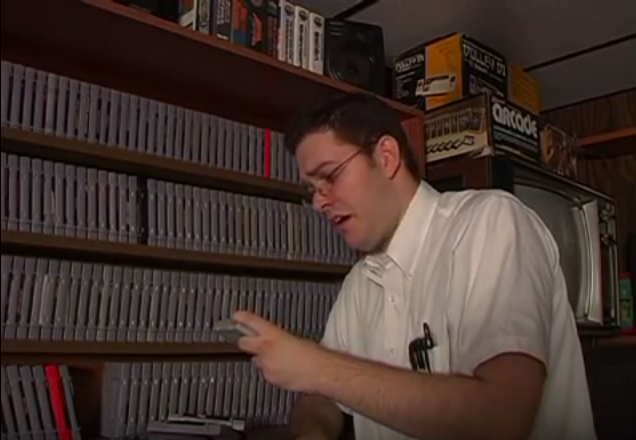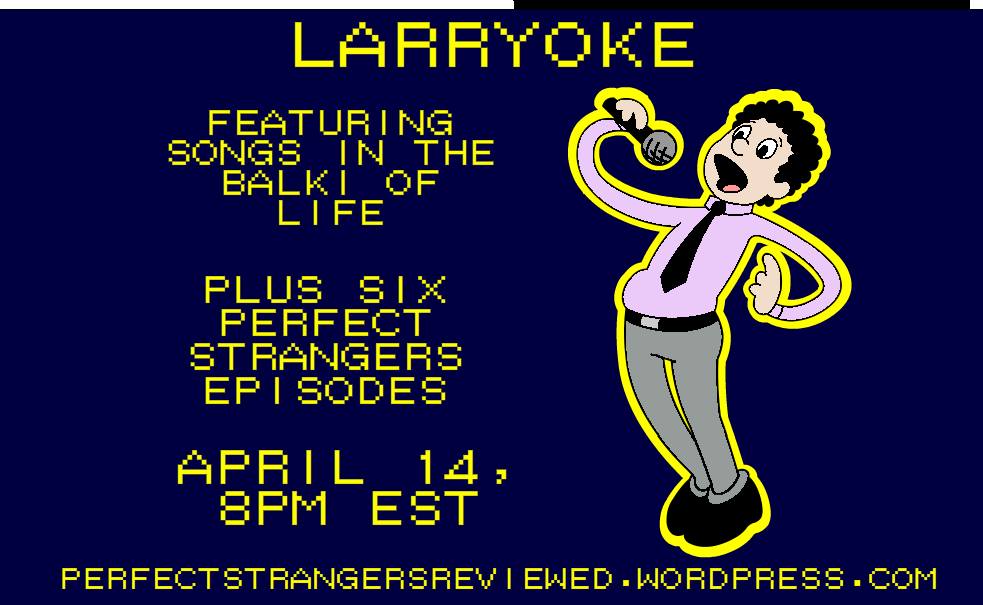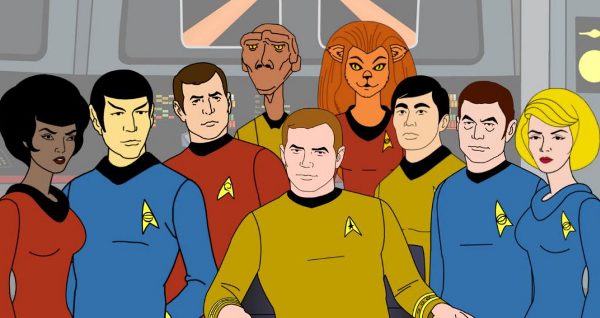This past Friday, James Rolfe — best known as the Angry Video Game Nerd — published a video featuring his personal top 10 episodes of that series. By this point, I’ve seen every episode…multiple times, in the cases of the ones I liked. Yes, I’d argue that the quality has gone downhill in recent years, but his top 10 video, I think, explains why: the episodes James names as his favorites are actually the ones that I’d probably name as my least favorites.
His desires aren’t in line with mine. He likes story lines and special effects and external zaniness. I like reviews. Sometimes they dovetail well, sometimes they don’t. He seems to like it when they don’t.
Which made me wonder about my top 10 Angry Video Game Nerd episodes. And as I’m moving this week, I figured this might be a fun post to leave you with, in case I lose internet access for a while.
For the purposes of this list, I did consider multi-part episodes (in which a game or series is covered in more than one sequential video) to be one review, but treated sequel episodes as their own entities. Otherwise, this should be pretty straightforward. Oh, and, there’s no Mike Matei to be found in the entire list. Funny how that worked out.
So, here you go. My personal top 10 episodes of a video game review show that’s shockingly been running almost as long as I’ve been online. I hope you enjoy.
10) Indiana Jones Trilogy
Episode 48: Like James, I’m starting my list with what I’d consider to be a “standard” episode. And I’m not really sure why this one keeps coming to mind, so if you’d like to, feel free to sub it out for The Simpsons, Dracula, Spider-Man or something. But the Indiana Jones Trilogy episode does a great job of providing exactly what I want to see when I tune in. The games are reviewed comprehensively, the observations are well made, the jokes are funny, and James has a clear and obvious love for the source material. (Well, the films at least. The odds of him having much love for these particular games are pretty slim.) What’s more, he reviews three related games, which I always love. Videos featuring multiple games will make up a lot of this list. While one-game reviews are often very good, I think I enjoy the variety of hopping around within a singular theme. Also, I enjoy videos about these middle-of-the-road bad games. The ones that aren’t worth playing for laughs on your own, but still provide plenty of fodder for comedy from a distance.
9) Action 52 / Cheetahmen
Episodes 90 and 91: Fruit doesn’t hang any lower than Action 52, but the sheer volume of crap crammed into a single cartridge really does make it worth revisiting over and over. Many game critics got to this one long before James did, but there’s still a lot of entertainment on display here. In fact, his skits and jokes don’t make this one at all; rather, the game humiliates itself by failing to load, throwing up glitch after glitch, and even preventing itself from progressing. Action 52 is an easy target, but a fruitful one. It’s a funny game to watch anyone play, and it’s only right that angry reviewing’s elder statesman got to take his jabs as well. The second part completes the review but it also looks at the Genesis version and Cheetahmen II, so it’s absolutely necessary to see them as halves of a complete whole. For what it’s worth, I actually did play Action 52 as a kid. A friend of mine owned it, and part of the appeal of James’ video, I think, is the marathon plow through game after game that reflects my exact experience of it at my friend’s house. Surely one of these games will have to be good…
8) Plumbers Don’t Wear Ties
Episode 74: Easily one of the out-and-out funniest episodes. Plumbers Don’t Wear Ties is more of a terrible amateur film than it is a game, but that just means James has a wealth of different things to criticize it for. Due to the nature of the game, this feels more like a truncated Let’s Play than a proper review, but it’s absolutely hilarious. This one has been a favorite of mine since it was first uploaded. It doesn’t advance the AVGN formula or do anything especially unique, but it’s one of James’ most successful comic outings in my opinion, and for that reason alone it deserves a place on this list.
7) Street Fighter 2010
Episode 85: There’s a lot to love about this one. It covers multiple games, provides an interesting history of the Street Fighter franchise, and it gives a relatively unknown game (by Capcom NES standards) a spotlight it surprisingly ends up deserving. But I think what I really love about it and what makes it stand out in my mind is that it serves as a perfect illustration of what kept us playing these extremely difficult, often unfair, relentlessly punishing video games. James starts off predictably enough, complaining about the controls, the difficulty, and the absurdly tenuous connection to the Street Fighter name. But then something clicks. Sure, the game in many ways sort of sucks…but it’s overall compelling enough to keep him coming back. He pushes through, gradually. He engages with the game on its own terms, even as he lambastes those terms. He doesn’t just learn how to complete a level, but how to complete it quickly, without taking damage, and while collecting all of the powerups. Why? Because you have to, otherwise you can’t finish the game. Obviously James has (rightly) given up on many games in the past. He reaches a roadblock or finds some reason to call it quits, and you can’t blame him. So for Street Fighter 2010, which certainly seems like one of the most difficult games he’s ever played, it says an awful lot that he actually takes the time to finish it. In doing so, he reminds us of what we’ve all gone through. It likely wasn’t Street Fighter 2010 for most of us. It may have been Mega Man. Or Battletoads. But we all had those moments, when we cursed at a game, hated a game, raged against a game’s refusal to play fair…and yet fell in love anyway. A truly great episode.
6) Back to the Future ReRevisited
Episode 94: The earliest AVGN episodes (or Angry Nintendo Nerd episodes, I should say) were great for what they were. I remember watching them with my friend Mike, who couldn’t believe what he had found. I couldn’t believe it, either. Almost nothing James was saying about those old games was new or even especially insightful, but for the first time it felt like the frustrating experiences we had as kids were actually universal, and somewhere out there, some guy in a white buttondown was profanely articulating them on our behalf. It was a riot, especially because there was nothing else like it at the time. It felt genuinely novel. But, of course, James’ style progressed, and watching those old episodes, it’s easy to see their rough edges and puzzling omissions. James saw it, too, and used this episode to re-review those games, paving over the holes and fleshing out criticisms he’d barely scraped before. The centerpiece is Back to the Future on the NES, which somehow provides even more material than he wrung from it the first time around…and we get proper looks at other Back to the Future games as well. What I really love, though, is the ending. As often as James tries to cram actual narrative into these episodes — and as often as I’d argue it fails — sometimes a real-world twist like what we get here achieves more than careful scripting ever could.
5) Virtual Boy
Episode 42: My absolute favorite kind of AVGN episode. This one looks at something that’s not obscure, exactly, but which relatively few viewers will be personally familiar with. James provides a history lesson, places the product in its proper context, and reviews every single one of the games released for it. (Initially he left out Jack Bros., but I’m linking to a later version of the video that includes it.) The Virtual Boy was a high-profile failure, and probably the first true stumble for Nintendo…a company that in so many young eyes — mine included — could do no wrong. I sensed something was off as a kid, and the Virtual Boy was probably the first thing Nintendo ever made that I didn’t want at all. Watching this video, I see that I didn’t miss out on much. Surprisingly, most of the games turn out to be either fun or inoffensive, leaving the hardware itself to shoulder the blame for the system’s failure. Many of the best AVGN episodes teach me something beyond “the controls in this game are bad.” This one provided a great overview of a gaming curiosity I only ever experienced in the periphery. Eventually I did get to play a Virtual Boy at a convention, and I was actually impressed with how well it handled the 3D effect. But as this episode demonstrates, the gimmick failed to justify the machine’s existence. James’ video provides a perfect eulogy.
4) Godzilla
Episode 77: A friend of mine isn’t a huge fan of the AVGN, but he does enjoy James’ other big series: Monster Madness. He says this is because James has a real knowledge of and passion for cinema…and I’d say the same thing about my friend, so I’m willing to believe it. Monster Madness used to be a yearly series that would run every October. It’s been discontinued, but every so often James’ clear love of film bleeds into an AVGN episode. This may be the prime example, as he’s able to identify obscure characters from these Godzilla video games and trace their cinematic histories…including characters who didn’t even originate with that series. The whole “licensed games are garbage” thing is well worn by this point, but I think an episode on garbage Godzilla games is deserved. After all, why wouldn’t Godzilla games be awesome? He’s a giant monster who smashes things. How hard could it be to make a fun game based on that? You’d have to actively try to make them lousy by stripping away the very essence of who Godzilla is and what Godzilla does. Sure enough, every game the AVGN covers here does exactly that in its own way. And James’ frustration and disappointment in that fact feels far more natural here than it does in so many other episodes, as he clearly cares about the franchise…and just wanted one game he could enjoy along with the films.
3) Ghostbusters
Episodes 21, 22, and 23: I remember thinking the very first AVGN episodes were nothing if not exhaustive. Then we got a three part episode about Ghostbusters on the NES and I realized I hadn’t seen anything yet. Ghostbusters, like Godzilla, seems like a can’t-miss video game premise. You have popular and recognizable heroes, awesome gear that every little boy wanted desperately to get his hands on, and an opportunity to create fun and inventive ghosts for players to shoot at. And, like Godzilla, Ghostbusters went out of its way to miss. It’s an extremely strong concept for a game that is botched spectacularly. The three-part nature of this episode may sound like overkill, but it makes sense to me. It implies a “can’t look away” sort of reaction to the game, which mirrors the one I had as a kid. Yes, Ghostbusters was terrible…but I kept renting it. Kept playing it. Kept hating it. All the while, I guess I couldn’t believe my eyes. I returned over and over again to the game, hoping for it to finally click. Hoping it would reveal itself as the great game I knew it should have been. Hoping I’d realize that I was just playing it incorrectly, or looking for the wrong things. With this series of videos, the AVGN lets go of that hope with a comprehensive review, suggestions for improvement, a look at the game’s many ports, and reviews of other Ghostbusters games to cleanse the palate.
2) Bible Games
Episode 17: The AVGN’s first masterpiece, for sure. The videos prior to this were often funny and were absolutely novel for their time, but this is the video that, in my estimation, made it clear that the concept had staying power. Laying into a good portion of the Wisdom Tree catalog, James spotlights exactly what’s wrong with these offensively lazy Christian cash-ins, approaching them almost entirely from a game-design standpoint and leaving the viewer to decide how true or genuine the didactic intentions of the developers were. Did they truly feel they were saving souls? Or were they just counting on parents to throw money their way without knowing better? The answer’s pretty clear to me, but James does a great job of highlighting his own sampling of absurdities, leaving it to you to pick up on the rest. This one is still and will always be an easy favorite. James dipped back into the Bible games well a few times since, but in my estimation, none of the sequel episodes rise quite to the highs of the original. (Bible Games 2 came pretty close, though.) Taken as a relic of a time when “the NES had Bible games” was a genuine and hilarious revelation, this video is great. Familiarity has dulled its edge a bit, but there’s still a great deal of fun to be had from watching. This is one of those “often imitated, never duplicated” situations, and Bible Games is exactly what every angry reviewer to follow (including yours truly) strove to measure up to.
1) Castlevania
Episodes 79, 80, 81, and 82: The very first AVGN episode was about Castlevania II: Simon’s Quest, kicking off this surprisingly long-running series with a look back at the archetypal game James wished he could love. 78 episodes later, he returned to that series with a four-part retrospective that isn’t just my favorite AVGN material, but which is easily some of the best stuff I’ve ever seen on YouTube. I end up rewatching this miniseries around Halloween every year, and I enjoy it a little more each time. The jokes and observations are good, of course, but what really pushes it over the top and makes it worth revisiting is James’ profound love for the series, and for classic horror films in general. He makes the most of his shtick, of course, but this is probably the closest we get to hearing from the “real” person beneath the persona, with his memories of the first five Castlevania games, his later experience of the games on other consoles, and a well-earned paean to the series that closes the entire thing off perfectly. I understand that James and I appreciate different things about his output, but the fact that this didn’t make his top 10 is astounding. I don’t know how the AVGN will eventually end his series, but I’m confident he couldn’t possibly go out on a higher note than this.
What are your favorites? Anything you’d especially disagree with above? I’d be curious to know. Enjoy, and I’ll be back soon!










